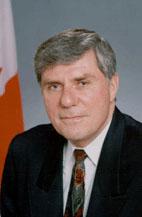Mr. Speaker, I want to ask my colleague a couple of questions.
I wonder if she would be kind enough to define feminism for the House. There appears to be a number of meanings. I think we might profit from that definition. There seems to be a feeling that feminism exists only among women. I would like to be corrected if I am wrong.
Second, does the secretary of state know whether there are any churches or groups of people who belong to traditional churches who support this legislation? I think that too might be useful to those who are watching and listening.

